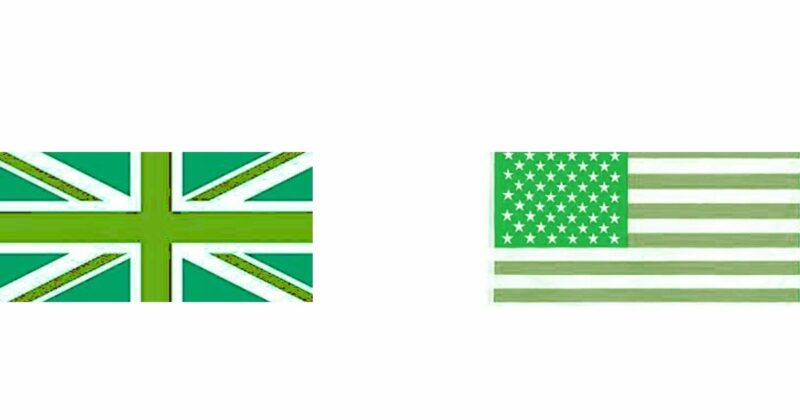Hello! It’s konkaz (@konkazuk) here.
In this article, we are going to have a look at the differences between British English and American English, particularly focusing on variations in vocabulary. (By the way, you might find this article slightly Anglophilia…but that’s because I am based in London,)
Now, for those considering a future career involving English communication, it might be effective to memorize vocabulary by determining whether you’ll be dealing with British or American English.

At the end of the day, you’ll need to learn both British and American English, but initially, focusing on the one you’ll actually use in spoken communication is much more practical.
Well, let’s have a look, anyway.
The difference in vocabularies between British English and American English
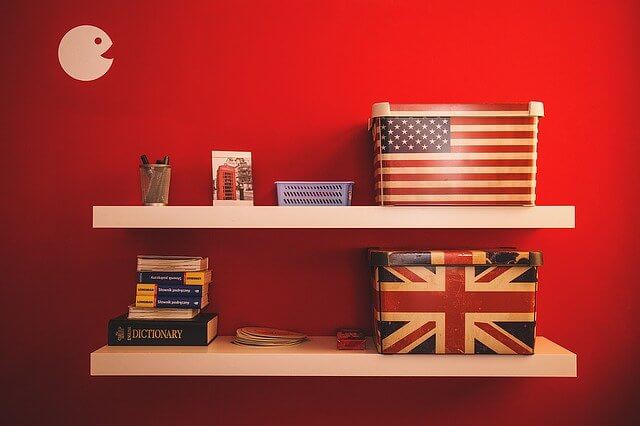
For now, I’ve casually lined up the differences.
There are sure to be some interesting discoveries. ✨
Eggplant? Courgette???
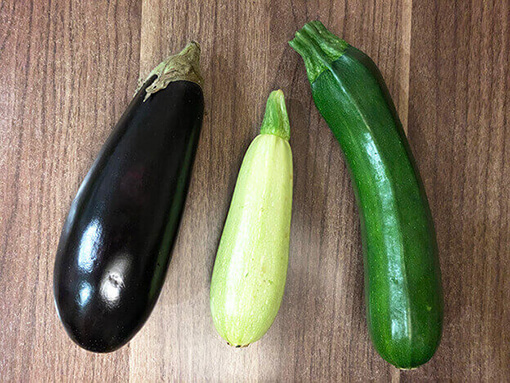
Well, let’s start with vegetables…
I’ve never lived in the United States, therefore I’m not familiar with American English, however, in the UK, calling ‘nasu‘ ‘eggplant‘ wouldn’t likely be understood.
‘nasu‘ is called ‘aubergine‘ [əʊbəʒiːn] here in the UK.
Let’s check out another vegetable.
What we call ‘zucchini’ in Japan is one of the popular vegetables that you can easily find in supermarkets and groceries in England.
but over here,
it is called ‘courgette‘ [kɔːˈʒet]
The word ‘zucchini’ is not common here in England.
zukkini
courgette 🇬🇧 zucchini 🇺🇸
nasu
aubergine 🇬🇧 eggplant 🇺🇸
Potato chips
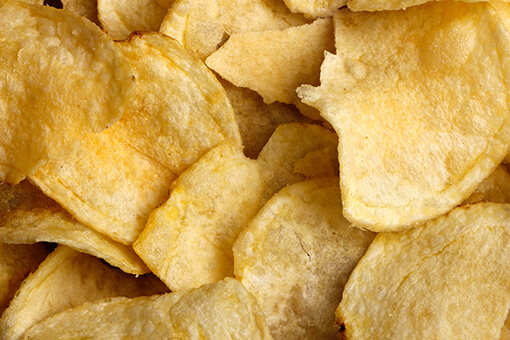
Next, let’s go through ‘potato chips‘ and ‘Frech fries‘
If you’ve recently come to the UK, it might take a little time to get used to these two…
A bag of crispy potato snack called ‘potato chips‘ is called ‘crisps‘ here in England, and ‘French fries‘ which you eat in McDonald’s are called ‘chips‘ over here.
potato chips
crisps 🇬🇧 potato chips 🇺🇸
French fries
chips 🇬🇧 French fries 🇺🇸
Elevator
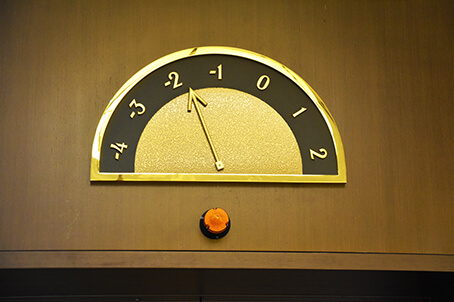
This American-English vocabulary ‘elevator’ is commonly used in Japan.
Although the word can be recognised by British people, you don’t really hear it from their mouth.
‘lift‘ is the equivalent word of ‘elevator‘ in the UK.
elevator
lift🇬🇧 elevator 🇺🇸
Chikatetsu
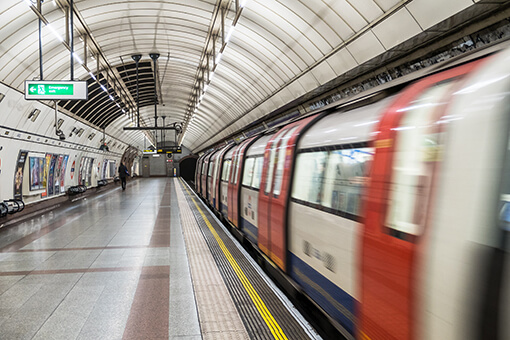
As for ‘chikatetsu‘, different words are applied between British English and American English.
In American English, the term ‘subway‘ is equivalent to the Japanese word ‘chikatetsu,’ while here in Britain, ‘tube‘ or ‘underground‘ is used instead.
When I was in Japan, I personally believed that the English word for ‘chikatetsu’ was ‘metro.’
However, the word ‘metro’ is not specifically British or American.
(Strictly speaking, it originated from London’s Metropolitan line though.)
The word for ‘underground’ is also ‘metro,’ and it is used internationally, including in France, Japan, and Egypt.
chikatetsu
tube 🇬🇧 subway 🇺🇸
takeout

I guess American English ‘takeout‘ is commonly used in Japan.
British version of ‘takeout’ is ‘takeaway‘!
omochikaeri
takeaway 🇬🇧 takeout 🇺🇸
Off-license
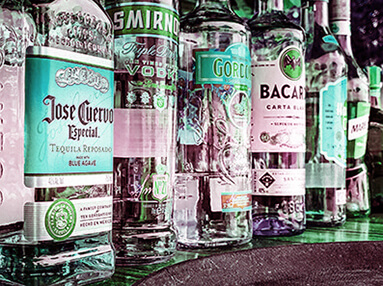
This vocabulary is characteristic of British-English.
An American English, ‘liquor store‘ (by the way, that was the name of the last band I was in!) sounds straightforward, but British English ‘off-license‘ might make people confused like… “Huh? What’s that?”
The name derives from…
If the license is ‘on’, it means ‘You are permitted to have a drink’.
So it implies the places like ‘pubs’ and ‘bars’.
On the contrary, if the license is ‘off’, it means ‘You are not permitted to have a drink’. Hence, even though the alcoholic drinks are sold in the shop, they are not allowed to be consumed in the premise. You are to have it elsewhere.
In a nutshell, it’s about the license to have a drink in the premise.
By the way, off-license generally sells variety of things from packets of snacks to toilet rolls other than alcoholic drinks.
off-license
off-license 🇬🇧 liquor store 🇺🇸
traffic system

Since I do not drive myself, I feel unrelated to the vocabularies of this area.
However, I watch news from time to time, and when I hear an American-English vocabulary “gas” instead of a familiar word “petrol”, sometimes it takes some time for me to figure out what it is…
Incidentally, I had regarded the word “Main Street” as a British-English vocabulary till recently, because there is this cool album called “Exile On Main St.” recorded by The Rolling Stones!
auto-by
motorbike 🇬🇧 motorcycle 🇺🇸
kousoku-douro
motorway 🇬🇧 highway 🇺🇸
main-douri
high street 🇬🇧 main street 🇺🇸
gasoline
petrol 🇬🇧 gas 🇺🇸
hikouki
aeroplane 🇬🇧 airplane 🇺🇸
shopping, etc???

Apologies for categorizing the following six vocabularies roughly as “shopping”. w
Calling ‘trousers‘ as ‘pants‘ is very American, I presume…
Anyway, whether you call them ‘trousers’ or ‘pants’,
you need to start with ‘a pair of ~‘… like ‘a pair of trousers’ or ‘a pair of pants’.
just like when you call scissors as ‘a pair of scissors’.
‘queue’ is a very British vocabulary.
(👉 Attention!!! It is pronounced as [kjuː])

Because the spelling of the word is so different from its pronunciation, I have memorized it as “ku-e-u-e”… It sounds appalling, doesn’t it?
Using the word ‘bill‘ for paper currency is kind of weird to me because I am so used to the British vocabulary ‘note‘…
The word ‘bill’ is used for many things but the first thing that comes up in my head is paying your bill in a restaurant…
We say ‘bill please?’ with crossing our fingers, don’t we?
zubon
trousers 🇬🇧 pants 🇺🇸
undo-gutsu
trainers 🇬🇧 sneakers 🇺🇸
yo-fuku dansu
wardrobe 🇬🇧 closet 🇺🇸
retsu
queue 🇬🇧 line 🇺🇸
ten-in
shop assistant 🇬🇧 salesclerk 🇺🇸
shihei
note 🇬🇧 bill 🇺🇸
office sorts…

Office sorts… hmm…
I suppose ‘cell phone‘ is a familiar equivalent English word of ‘keitai denwa‘ ?
(I’d never had one while I was in Japan, by the way… w)
In England, it is called ‘mobile phone‘, or simply ‘mobile‘.
Japanese vocabulary ‘gomi‘ is called ‘rubbish‘ in England.
And also, insignificant opinions or unfunny jokes are called ‘rubbish‘, too.
Incidentally, ‘gomi-bako‘ is called ‘rubbish bin‘ or simply ‘bin‘ in England, while ‘trash can‘ is commonly used with American-English.
One of the ‘rubbish-related’ words that often fails to come up in English, is ‘chiri-tori‘!!!
I’m sure many people have had moments where they’ve thought, ‘Hmm… what’s that thing called again?
Well, let’s nail it this time!
“chiri-tori” is called “dustpan” in English.
Just imagine the shape of “frying pan” and you will get it from next time!
Regarding an English equivalent word of ‘kyuu-ryou‘, ‘salary‘ must be the one that is familiar to us Japanese due to the Katakana word “salary-man”.
‘wage‘ is a British equivalent word of ‘kyuu-ryou‘.
keitai denwa
mobile phone 🇬🇧 cell phone 🇺🇸
keshi-gomu
rubber 🇬🇧 eraser 🇺🇸
gomi
rubbish 🇬🇧 garbage/trash 🇺🇸
kyuuka
holiday 🇬🇧 vacation 🇺🇸
syuku-jitsu
bank holiday 🇬🇧 public holiday 🇺🇸
kyuu-ryou
wage 🇬🇧 salary 🇺🇸
life sorts…

There is this notable difference in calling stories between British-English and American-English.
In England, ground level is regarded as “zero”, hence the 2nd floor of a building with American-English is equivalent to the 1st floor with British-English.
UK
ground floor, 1st floor, 2nd floor, 3rd floor…
USA
1st floor, 2nd floor, 3rd floor, 4th floor…
The term “bloke” in British English gives off that ‘that bloke’ or ‘this bloke’ feel, similar to “guy”. On the other hand, “guy” in American English sounds more… lively. (…just a personal impression)
“soccer” is a national sport in England, but you don’t hear the word from natives.
(You only hear it from foreigner’s mouth.)
“Football” is the term commonly used here!
apartment
flat 🇬🇧 apartment 🇺🇸
ikkai (1st floor)
ground floor 🇬🇧 1st floor 🇺🇸
ban-sou-kou
plaster 🇬🇧 band-aid 🇺🇸
yakkyoku
pharmacy 🇬🇧 drugstore 🇺🇸
syou-gakkou
primary school 🇬🇧 elementary school 🇺🇸
cookie
biscuit 🇬🇧 cookie 🇺🇸
otoko (yarrou)
bloke 🇬🇧 guy 🇺🇸
soccer
football 🇬🇧 soccer 🇺🇸
post sorts…
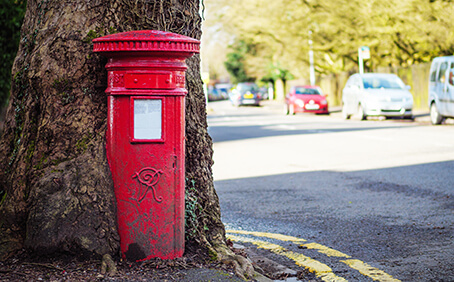
There are only two here…
It’s important to note the difference in terminology between the UK’s “postcode” and the US’s “ZIP code“.

Incidentally, the conversation takes a slight detour, but recently, my wife had to send a package to Hong Kong and we were surprised to find out that there are no “postal codes” in Hong Kong!
yuubin
post 🇬🇧 mail 🇺🇸
yuubin-bangou
post code 🇬🇧 zip code 🇺🇸
season

“Autumn Leaves” is a jazz standard song… Yes.
The tune is in an album called “Somethin’ Else” performed by Cannonball Adderley and Miles Davis, etc. and it’s very popular.
But my personal favourite is the version performed by Barney Kessel (guitarist).
aki
autumn 🇬🇧 fall 🇺🇸
something to carry…

hmm… it’s an air travel thing …
tenimotsu
luggage 🇬🇧 baggage 🇺🇸
Well, this is it.
Having looked through all these vocabularies, I see most of Japanese “Katakana (loan word)”s are American English…
I had never actually heard any of these words “takeaway”, “petrol”, “tube” and “wage”, while I was in Japan.
Anyway, there must be lots more, but these are the ones I can think of at this moment…
pronunciation
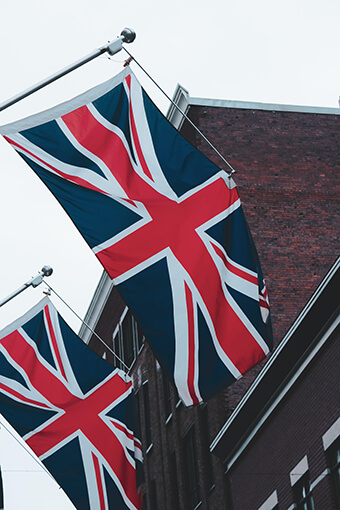
While living in England, I occasionally come across those people who tell me the fact that they are not really fond of American English accent…
After living in the same place for a certain period, the things we usually encounter become our ‘norm,’ and we might develop a kind of local pride without even realizing it.
In my case, I don’t really mind the difference between British English and American English. However, I must admit, I am a bit sensitive to certain aspects of the American accent.
(oops, hope I am not creating any enemies…)
Anyway, that would be the sound of ‘to‘ at the end of words, as well as the ‘er‘ sound, or even ‘ter‘ and ‘tor‘ sounds.
Below are the examples…
Water, Elevator, Calculator, and Tomato.

For instance, in Britain, “water” is pronounced as…
[wɔːtə]
or you often hear youngsters pronouncing it without ‘t’, like…
[wɔːə]
However, with American accent, it is pronounced as…
[wɑɾɚ]
It sounds like bridging the “t” sound…
When I hear the phrase like “See you later, alligator!” with American accent, my brain starts to melt…
That flap T sound between two vowels plus finishing with very strong R gives me an impression of…
something very commanding!
and it makes me feel like… as if I had been shot by tranquilizing gun…
ahh…
I don’t know the cause of this… it’s something I cannot explain…
(I can’t wear polyester shirrrrrrrrrrrrrrrts!!)
Although you might catch young generations talking with omitting the letter “t” from the words , “t” is generally pronounced clearly in British English.
Linguistically, English is pretty much different from Japanese in many ways, however I find a sort of familiarity in British English’s characteristic of pronouncing the “t” sound clearly, knowing the fact that the “t” sound of English pronunciation is “unvoiced”, and it doesn’t really match up with Japanese Katakana sound (ta, chi, tsu, te, to)…
Like “watashi” (= I ) or “Kitani” (=dirty)…
Well, it’s just a very personal impression…
Which one should you choose between British English and American English?
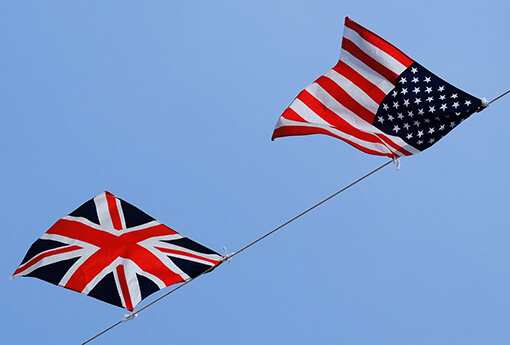
Regarding the choice between British English and American English, I’d say that if you’re going to be dealing with English for the rest of your life, in the end, you’ll need to learn both.
At first, you might find yourself drawn to the accent of your favorite country, but the truth is, English encompasses a wide range of accents, not just in the UK and the US, so you’ll need to understand them all.
Particularly in the case of America, being an incredibly large country, a significant portion of its population contributes to the cultural output.
Even if you’re accustomed to British English while living in Europe, when it comes to listening to audiobooks or watching movies, you’ll inevitably encounter works with American accents.
Furthermore, as times change, it’s now possible to enroll in American universities and take lectures online, even if you don’t live in the United States.
The reverse is also true…. Even if you only learn American English, it’s impossible to avoid encountering English words used by people in countries like the UK and across Europe, different English accents, and accents from diverse backgrounds such as African, Indian, Chinese, and so on.
Therefore, although you might initially learn English by modeling either the British or American accent, eventually, it’s essential to absorb the accents and country-specific vocabulary of various English-speaking nations.

That’s all for now.
If this was of any help to you, I’m glad.
See ya.
konkaz
You can read this blog post in Japanese from the link below.
👉 イギリス英語とアメリカ英語は、自分が将来どっちの英語に深く関わるかを考慮して、学ぶ方を決める! 《英語汁 第1号》

